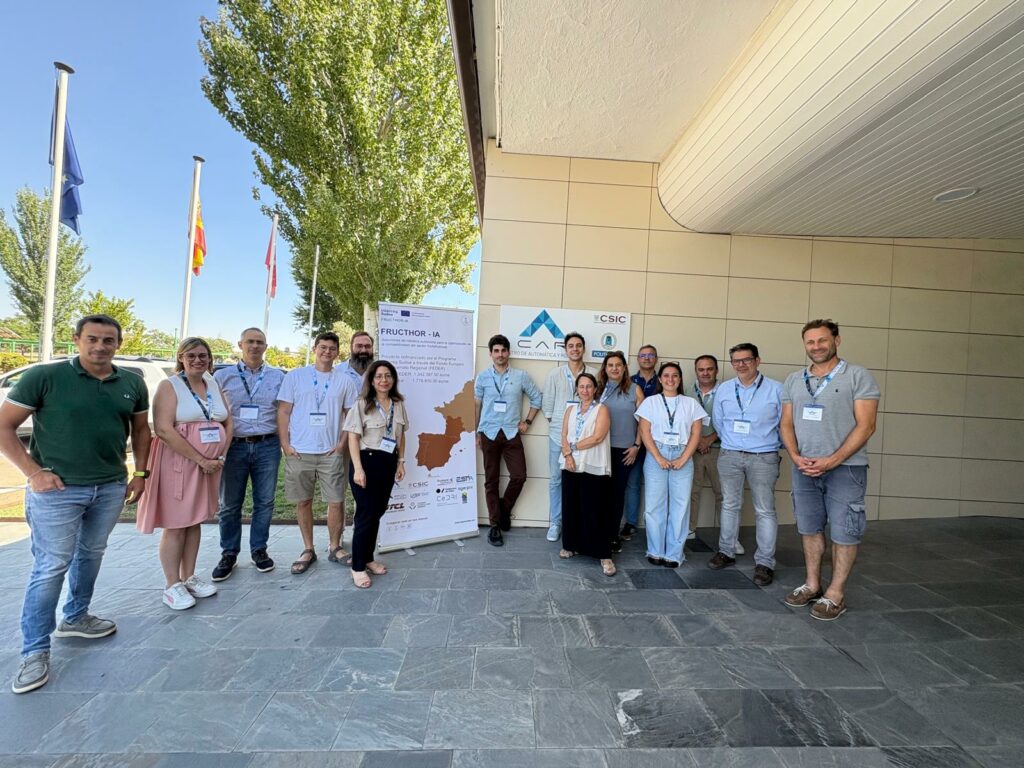This international project promotes autonomous robotics solutions to improve the competitiveness of the fruit and vegetable sector in Spain, France, and Portugal.
The town of Arganda del Rey (Madrid) hosted this July the kick-off meeting of the FRUCTHOR-AI project, which aims to implement various autonomous robotics solutions to optimize the competitiveness of the fruit and vegetable sector in Spain, France, and Portugal.
This initiative is part of the Interreg Sudoe territory, co-financed by the Interreg Sudoe Program through the European Regional Development Fund (ERDF), with an ERDF contribution of €1,342,387.50 and a total cost of €1,778,850.00.
The meeting, held at the Center for Automation and Robotics, brought together all members of the European consortium. Participants presented and discussed the initial points and the start of work by the different working groups, introducing options for automation and the development of autonomous robotic solutions, pilot trials of autonomous robotics systems, as well as training and financial feasibility measures for these solutions.
TECHNOLOGY FOR A KEY SECTOR
The fruit and vegetable sector represents a fundamental economic activity in the Sudoe region, characterized by high productivity, diversification, and specialization. It plays a crucial role in job creation and business opportunities, particularly in rural areas.
However, it faces significant challenges related to market globalization, increased competition, reduced profitability, labor shortages, and difficulties in generational renewal.
The FRUCTHOR-AI project seeks to address these challenges by promoting competitiveness optimization in the horticultural sector through the development of innovative autonomous robotics solutions for crop monitoring and human-robot collaboration. This technological contribution aims to enhance social and territorial cohesion, strengthening the sector as a pillar of a sustainable and inclusive economic model.

NEXT STEPS
During the meeting, the partners presented the tasks to be developed over the coming months, notably the analysis of automation needs and the definition of the solutions to be implemented. The work plans and responsibilities of each partner within the various task groups were also detailed.
The consortium is led by the Spanish National Research Council (CSIC) – Center for Automation and Robotics, and includes the ITCL Technology Center, as well as the Advanced Center for Aerospace Technologies, Chambre d’Agriculture Dordogne, Conseil Départemental de la Dordogne, Agerpix Technologies, École Supérieure des Technologies Industrielles Avancées, Associação de Municípios da Cova da Beira, IPBragança – Center for Research in Digitalization and Intelligent Robotics, and Viseu – School of Agrarian Studies (Escola Superior Agrária de Viseu).

